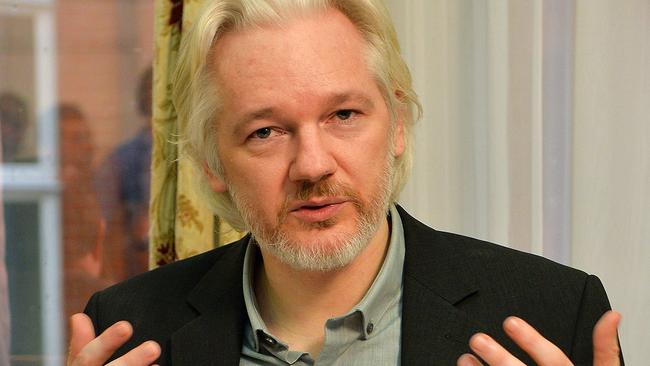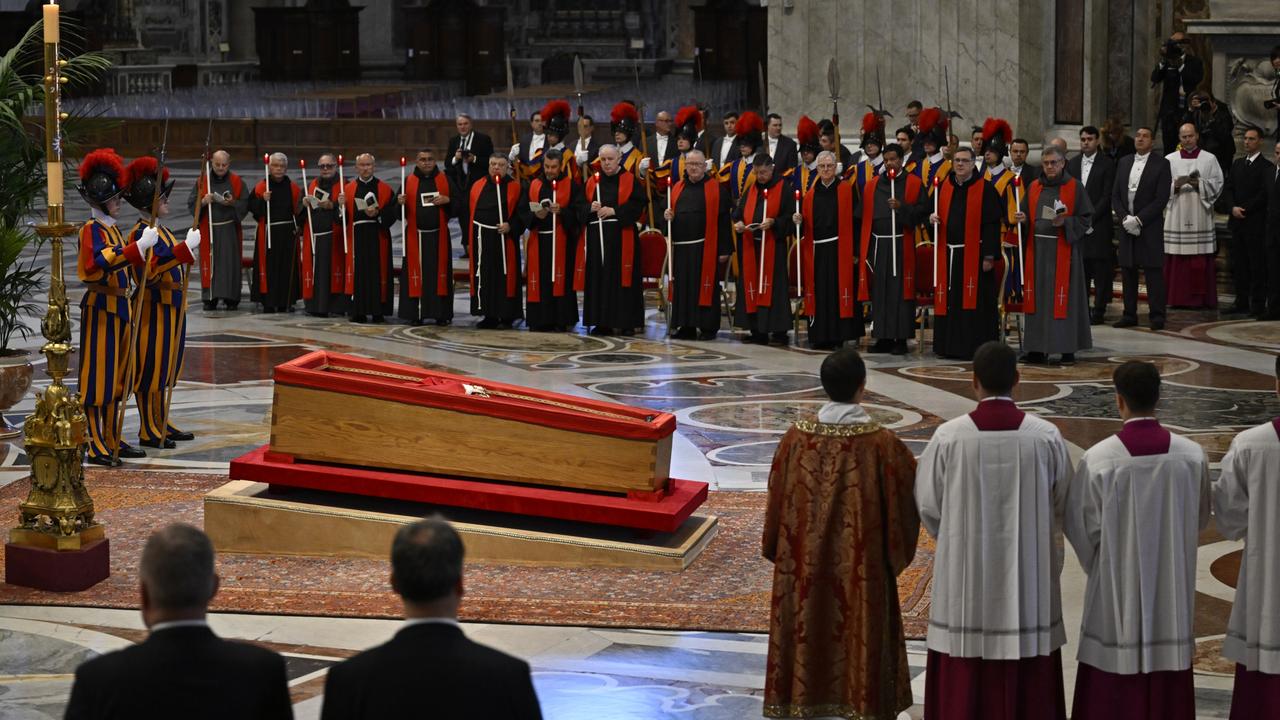WikiLeaks spills ‘Saudi secrets’
WikiLeaks says it is publishing more than 500,000 Saudi diplomatic documents on the internet.

WikiLeaks was publishing more than 500,000 Saudi diplomatic documents to the internet, the transparency website said today, a move that echoes its famous release of US State Department cables in late 2010.
WikiLeaks said in a statement that it had already posted roughly 60,000 files. Most of them appear to be in Arabic.
There was no immediate way to verify the authenticity of the documents, although WikiLeaks has a long track record of hosting large-scale leaks of government material.
The Saudi embassy in Washington did not immediately return repeated messages seeking comment.
In its statement, WikiLeaks said the release coincided with the three-year anniversary of its founder, Julian Assange, seeking asylum in the Ecuadorean embassy in London.
Mr Assange took refuge in the embassy to avoid extradition to Sweden, where he is wanted for questioning about alleged sex crimes. Mr Assange has denied any wrongdoing.
Many of the documents carried green letterhead marked “Kingdom of Saudi Arabia” or “Ministry of Foreign Affairs.” Some were marked “urgent” or “classified”. At least one appeared to be from the Saudi embassy in Washington.
If genuine, the documents would offer a rare glimpse into the inner workings of the notoriously opaque kingdom.
They might also shed light on Riyadh’s longstanding regional rivalry with Iran, its support for Syrian rebels and Egypt’s military-backed government, and its opposition to an emerging international agreement on Tehran’s nuclear program.
One of the documents, dated to 2012, appears to highlight Saudi Arabia’s well-known scepticism about the Iranian nuclear talks. A message from the Saudi Arabian embassy in Tehran to the Foreign Ministry in Riyadh describes “flirting American messages” being carried to Iran via an unnamed Turkish mediator.
Another 2012 missive, this time sent from the Saudi embassy in Abu Dhabi, said the United Arab Emirates was putting “heavy pressure” on the Egyptian government not to try former president Hosni Mubarak, who had been overthrown in a popular uprising the year before.
Some of the concerns appear specific to Saudi Arabia.
In an August 14, 2008 message marked “classified and very urgent,” the Foreign Ministry wrote to the Saudi embassy in Washington to warn that dozens of students from Saudi Arabia and other Gulf countries had visited the Israeli embassy in the US capital as part of an international leadership program.
“They listened to diplomats’ briefings from the embassy employees, they asked questions and then they took pictures,” the message said, asking the embassy for a speedy update on the situation.
Another eye-catching item was a document addressed to the interior and justice ministers notifying them that a son of Osama bin Laden had obtained a certificate from the American embassy in Riyadh “showing (the) death of his father”.
Many more of the dozens of documents examined by The Associated Press appeared to be the product of mundane administrative work, such as emails about setting up a website or operating an office fax machine.
The AP was able to partially verify a handful of documents’ authenticity by calling the telephone numbers included in many of them.
WikiLeaks spokesman Kristinn Hrafnsson told AP he was confident that the material was genuine.
It is not clear how WikiLeaks got the documents, although in its statement the website referred to a recent electronic attack on the Saudi Foreign Ministry by a group calling itself the Yemen Cyber Army.
Mr Hrafnsson declined to elaborate on the statement or say whether the hackers subsequently passed documents on to WikiLeaks.
“As a matter of policy we’re not going to discuss the source of the material,” he said.
The letter from a son of al-Qa’ida leader bin Laden, stating it is from the US embassy in Riyadh, is signed by Glen Keiser, the US consul general in Riyadh and addressed to Abdullah bin Laden on September 9, 2011, about four months after a US raid killed his father in Pakistan.
“I have received your request for a death certificate for your father, Usama bin Laden,” Mr Keiser wrote.
Legal experts in the State Department advised that no such document was issued, he said.
“This is consistent with regular practice for individuals killed in the course of military operations.” Instead, Mr Keiser provided Abdullah bin Laden with US court records in which officials confirmed his father’s death and, as a result, dropped a criminal case against him.
“I hope that these US government documents are of assistance to you and your family,” Mr Keiser said.
The bin Ladens are a prominent Saudi business family. The kingdom stripped Osama bin Laden of citizenship in 1994.
Mr Assange meanwhile claimed that Swedish prosecutors cancelled a landmark meeting in his case earlier this week.
The Australian activist said a long-awaited interview with the prosecutors fell through in what he labelled a “public relations exercise”, although the prosecutor’s office declined to comment.
Mr Assange, 43, sought asylum in the embassy in June 2012 to avoid extradition to Sweden, where he faces allegations by two women, one of rape and one of sexual assault, which he denies.
The former computer hacker fears extradition to Sweden could lead to him being transferred to the US to face trial over WikiLeaks’ publication of classified US military and diplomatic documents.
Prosecutors had long insisted that he travel to Sweden for questioning but in March they agreed to go to London instead.
They said they changed their stance because some of the alleged offences will reach their statute of limitations in August.
Mr Assange condemned what he said was the last-minute scrapping of Wednesday’s planned interview with a prosecutor, Marianne Ny.
“To behave in such a way seems reckless and it is hard to imagine that it was more than a public relations exercise,” he said in a statement.
According to an email seen by The Guardian newspaper, Ny said the meeting had to be cancelled because she had not received official permission from Quito to enter the embassy.
Entering the embassy meant he jumped his English bail and police have been posted outside ever since, at a growing cost to the public purse.
About 20 people gathered outside the embassy on Friday local time in support of Mr Assange, with banners reading: “Don’t shoot the messenger”, “Free Assange” and “Thank you WikiLeaks”.
Silvana Salazar, 39, an Ecuadorean, said: “If he’s sent to America they will jail him forever because he has information that could harm the US government.
Mr Assange has compared living inside the embassy — which has no garden but is in the plush Knightsbridge district, near Harrods department store — to life on a space station.
His 4.6 by 4 metre room is divided into an office and a living area. He has a treadmill, shower, microwave and sun lamp and spends most of his day at his computer.

Sweden’s deputy prosecutor Ingrid Isgren, who was to conduct an interrogation, was reportedly already in London.
But Ecuador said it was still evaluating the request for assistance, which was only received at the end of last week. Mr Assange himself says that could take weeks.
London-based Australian journalist John Pilger, a key Assange supporter, thinks the whole situation is a farce.
“Until recently, she [prosecutor Ny] refused to come to London to interview Assange,” he told AAP.
“Then she said she was coming, then she cancelled her appointment.
“It’s a farce but one with grim consequences for Assange should he dare step outside the Ecuadorean embassy.
“He faces much of a lifetime in the hellhole of a United States supermax should he leave the protection of Ecuador in London.”
AP/AFP



To join the conversation, please log in. Don't have an account? Register
Join the conversation, you are commenting as Logout